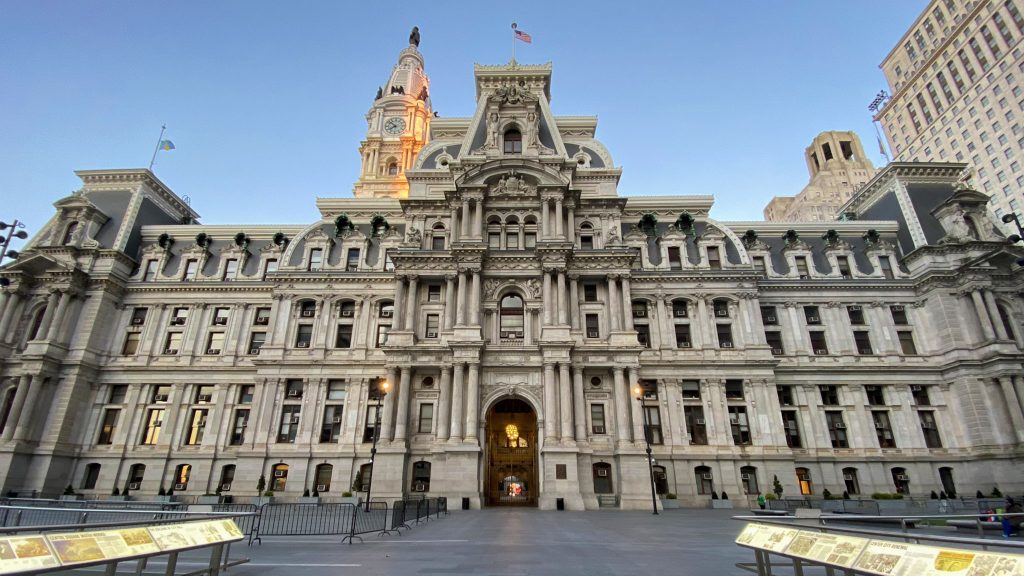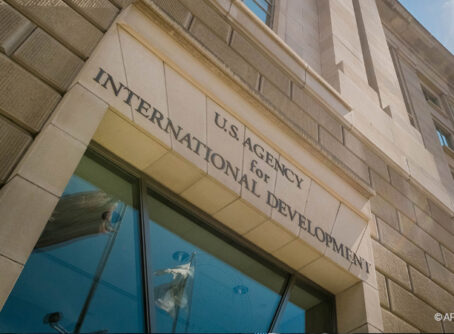
There is no doubt that Americans are deeply divided about sexuality and marriage. Contrasting personal convictions and practices embody our divisions as do the different values and practices of organizations. How should our governments respond to these divisions? Rarely do they enforce the traditional views. Should they instead require every person and organization to adopt contemporary convictions? In its June 17 Fulton decision concerning foster care services, the U. S. Supreme Court pointed instead, as in several previous decisions, toward civic pluralism—that is, legal protection for diverse views, for both gay rights and traditional religious convictions. Its ruling was narrow but the decision was unanimous, a surprising consensus for an issue where there is such deep contention. While the Court did not reject the Employment Division v. Smith precedent, which has weakened protections for the free exercise of religion, a majority of the justices agreed on the need for a standard that protects religious freedom more strongly. All of this is beneficial for faith-based organizations and it is a good step toward the system of public pluralism that our diverse and divided nation needs.
The Fulton case began when the City of Philadelphia decided to stop contracting with Catholic Social Services for the provision of foster care services. It did this after learning from a news report that, if it was ever asked to, the Catholic agency would not perform home studies to certify unmarried couples or same-sex married couples as foster parents, due to the agency’s religious beliefs. However, as Chief Justice Roberts’ unanimous opinion noted, “CSS does not object to certifying gay or lesbian individuals as single foster parents or to placing gay and lesbian children.” Catholic agencies have been providing care for children needing new homes in Philadelphia for more than two centuries, and CSS has contracted with the City to provide foster care services for more than fifty years.
No same-sex couple had ever approached the Catholic agency for certification. If any had, the Court records, “CSS would direct the couple to one of the more than 20 other agencies in the City, all of which currently certify same-sex couples.” But the City claimed that its contracting requirements and other city rules require every agency to agree to serve without any kind of sexual-orientation discrimination. Despite a large pool of children in institutions awaiting foster care placement, and despite the many decades of positive service by CSS, the City abruptly ended its relationship with CSS, shutting them out of foster care services entirely.
The City asserted that it had a weighty reason for its decision: it had to prohibit discrimination on the basis of sexual orientation, including by private organizations with religious bases for limiting service, in order to ensure fair treatment for all and to maximize the number of foster parents. The Court did not comprehensively overturn this prioritization of LGBT nondiscrimination over the protection of religious freedom, nor did it overturn its Smith precedent that has undermined the constitutional protection of religious exercise and religious organizations. Yet the way in which it overruled the City of Philadelphia and vindicated Catholic Social Services strengthens the foundation for a new and more pluralist way forward.
The First Amendment protects the exercise of religion—not only religious beliefs or worship—from government restrictions. Yet this right, like many other constitutional rights, must be limited sometimes. In Employment Division v. Smith (1990), the Supreme Court decided that restrictions on religious exercise are permissible if the government law or action applies across the board—i.e., if it is “generally applicable”—and does not expressly target religion. In truth, this is an inadequate interpretive principle; it might wrongly allow the federal government to prohibit all consumption of wine, consequently outlawing Eucharist or communion services in every religious tradition that requires the use of wine. Justice Alito names this as one of the many problems with the Smith standard in his lengthy concurring opinion, where he pleads for Smith to be overturned. Indeed, almost immediately after Smith was decided, a very broad coalition of religious freedom and civil rights organizations began working with Congress for a legislative remedy, leading to the passage of the Religious Freedom Restoration Act (RFRA) in 1993 with almost no opposition. RFRA is a special law that governs all other federal laws and actions, reestablishing much stronger protection of religious exercise than Smith.
In the Fulton case, other justices also expressed strong doubt on the adequacy of the Smith standard. It appears that a majority of the Court is seeking a different standard by which to interpret and apply the constitutional protection for religious freedom. However, the Court decided that — even without overturning Smith — it must rule that the City had violated the Constitution for having “burdened CSS’s religious exercise by putting it to the choice of curtailing its mission or approving relationships inconsistent with its beliefs.” Philadelphia must once again allow CSS to contract to serve foster children and foster parents.
Recall that, under Smith, if government rules burden religious exercise (as do the City of Philadelphia’s foster care nondiscrimination requirements in the case of Catholic Social Services), they must be “generally applicable” to be permissible. The City claimed that its rules were general—that it did require all of its contractors to abide by the nondiscrimination requirement. In fact, the Court pointed out, the contract itself said that the Commissioner who oversees the foster care system has the right to make exceptions to the rules. Moreover, the City stated that the Commissioner would never make an exception for CSS.
Because of the possibility of exceptions, Smith does not excuse the City simply imposing its nondiscrimination requirement. What then? In this circumstance, the Court assesses a decision such as the City’s refusal to accommodate CSS’s religiously motivated policy using the “strict scrutiny” standard: does the government policy advance “interests of the highest order,” and has it chosen a means that burdens religion as little as possible? The Court resoundingly said the City’s action failed this standard.
According to the Court’s opinion, the City was indeed pursuing a vital interest, but not in a way that could withstand this “strict scrutiny.” The City claimed that excluding CSS would expand the number of foster families but the Court suggested the opposite was more likely: “If anything, including CSS in the program seems likely to increase, not reduce, the number of available foster parents.”
What then of the City’s interest “in the equal treatment of prospective foster parents and foster children”? The Court agreed that this is a “weighty” interest but it is not a universal good that automatically trumps religious freedom. Given the circumstances, the Court said, “this interest cannot justify denying CSS an exception for its religious exercise.” Because the City is willing to make other exceptions, it cannot say that its policies must apply across the board. Thus, the City had no compelling interest in denying an exemption to Catholic Social Services and forcing it out of the foster care system.
As commentators have observed, the City of Philadelphia may be able to avoid allowing CSS back into foster care services by rewriting its contracts to eliminate the power of the Commissioner to grant exceptions. If so, it is likely that CSS will once more appear before the Supreme Court — and this time, the Court might decisively overturn Smith, replacing it with a standard that protects religious freedom in a more sweeping way, leaving the City without any defense.
In the meantime—while keeping in mind the narrowness of the decision, which hinges in an important way on the presence of discretionary exceptions in the contracts—we should note several important features of this unanimous decision.
First, although the Court did not say that measures to protect LGBT rights must always accommodate religious organizations with other views, it did rule that a religious exception can be required constitutionally even when a government is seeking to protect LGBT rights.
Second, part of the City’s argument against accommodating CSS’s religiously based policy was that the government has a greater right to insist on its standards when it has a contractual relationship with a private organization. But the Court responded that it had “never suggested that the government may discriminate against religion when acting in its managerial role.”
Third, the Court dismissed the City’s argument that, beyond the terms of the foster care contract, CSS was subject to the City’s requirement that every “public accommodation” not engage in sexual-orientation or other forms of discrimination. A government cannot simply claim that every kind of entity that has some interaction with the public is a public accommodation and thus is subject to sweeping nondiscrimination requirements. Organizations providing foster care services “do not act as public accommodations in performing certifications,” the Court said; “ . . . the one-size-fits-all public accommodations model is a poor match for the foster care system.” The Equality Act , which is currently before the Senate, proposes just such a “one-size-fits-all” definition of public accommodations. That is just one of many anti-religious provisions that demands revision.
Finally, note this significant observation at the end of the Fulton unanimous opinion: “CSS seeks only an accommodation that will allow it to continue serving the children of Philadelphia in a manner consistent with its religious beliefs; it does not seek to impose those beliefs on anyone else.” The City tried to insist that all agencies must be guided by its views about the equality of marriages and intimate relationships and attempted to reject CSS for holding to another view. CSS, meanwhile, just wants to coexist within the network of private agencies that work with the City to provide foster care services, maintaining its own views even as others operate in accordance with other views.
This is civic pluralism: not that all views are equally valid, but that the government respects the existence of the different views and does not construct a public square that forces conformity or enforces exclusion.
Not all views should be given the freedom to flourish and to be present in the public square. However, regarding our nation’s extensive division between progressive and conservative commitments concerning marriage and sexuality, the Court, in Fulton, has once again affirmed that both sets of beliefs and practices should have a protected place. Civic pluralism with respect to LGBT rights and religious freedom has been also the Court’s message in many recent cases: in the Obergefell marriage-equality decision (2015), where Justice Anthony Kennedy’s majority opinion emphasized that believers in traditional marriage must have the freedom to maintain that conviction; in the Masterpiece Cakeshop decision (2018), where the Court stressed that, while LGBT rights must be protected, government is not permitted to dishonor religious views; and in last year’s Bostock decision that extended employment civil rights protections to LGBT people, but where the Court pointed out that religious employers have the right to make employment decisions based on religion and emphasized that the Constitution’s “promise of the free exercise of religion … lives at the heart of our pluralistic society.”
But a practical civic pluralism, a pattern in which persons and organizations holding contrasting views can live side-by-side in actual life, requires more than strong Court affirmations of the importance of both religious freedom and LGBT rights. Restoring CSS’s role in Philadelphia’s foster care system promotes pluralism because there are already many other agencies that serve couples that CSS cannot. But it is not too difficult to imagine U.S. cities, towns, and counties where a religious agency with CSS’s views and policies could be the only provider of foster care services. That would not be civic pluralism. Thus, in addition to strong Court decisions upholding fundamental rights, our nation requires more creative legislation by Congress that sets out in the law how the rights of LGBT people and the rights of people and organizations committed to traditional views on marriage and human sexuality can be maximally protected simultaneously. The Fairness for All Act, H.R. 1440, is one significant initiative that details a way for us to live together.
Fulton is a vital decision, all the more important because it is unanimous. But it is not enough: Congress, too, must act.





